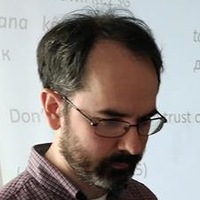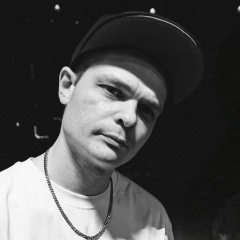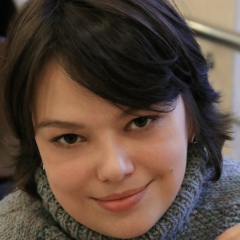Возможно, кто-то думает про себя: да чего этот Коровчинский про политику пишет? Он не профессиональный политолог, он дилетант.
Смиряюсь, преклоняюсь и даю слово профессионалам - например, "Российскому обществу политологов". Заходим на его сайт: http://rospolitics.ru, а там нашему вниманию предлагается интервью с Александром Федоровских "Сакрализация власти": http://rospolitics.ru/289-aleksandr-fedorovskih-sakralizaciya-vlasti.html. Интервьюируемый - эксперт Свердловского областного регионального отделения Российского общества политологов, кандидат философских наук, доцент кафедры государственного управления и политических технологий, и прочая, и прочая, и прочая.
Что же мы узнаем от профессионала? Сначала он сообщает нам, что сакрализация и десакрализация власти - "это два взаимосвязанных феномена". Вот поистине глубокая и оригинальная мысль. Осмелюсь добавить, это не менее достоверно, чем глубокая связь инсталляции и деинсталляции, милитаризации и демилитаризации, а также входа и выхода, одевания и раздевания и т. д. Поистине, профессионала в данном пункте невозможно оспорить!
Далее нас информируют, что "сакрализация власти неизбежна при любых типах и формах государственного устройства", доказательством чего провозглашаются широко известные черты сходства между советской атеистической идеологией и религией - культ работ Маркса как "священного писания", мумии Ленина и т. д. Это еще куда ни шло. Непонятно, правда, почему признаком сакрализации оказывается "особая советская лексика" (особая лексика есть где угодно, хоть в химии, хоть в хоккее, которые не становятся от этого сакрализованными). А "октябрята, пионеры, комсомольцы, коммунисты" - это, по мнению Федоровских, не что иное как "политизация и ритуалы формирования нового человека". Я сам был октябренком, но мне как-то трудно осознать, что я, оказывается, был "политизацией и ритуалом". Октябрята и комсомольцы - это, вообще-то, люди, а политизация и ритуалы людьми быть никак не могут. Старая проблема политологов, не понимающих, что Данди не может быть головой...
(Впрочем, в данном случае ответственность может нести тот, кто брал интервью и таким образом его отредактировал. И все равно - неужели РОП не может подобрать профессиональных интервьюеров?)
Далее Федоровских сообщает, что "понятие «власть» для гуманитарных наук имеет такое же фундаментальное значение, каким для естественнонаучных дисциплин обладает понятие «энергия»". Всю жизнь занимаюсь гуманитарной наукой, но чего не знал, того не знал. Вот, к примеру, гуманитарные дисциплины - лингвистика и музыковедение. В чем выражается фундаментальное значение для них понятия "власть"?
Но дальше еще интереснее: "наличие религии является причиной и условием неизбежного процесса сакрализации власти", и далее уточняется, что речь идет конкретно об авраамической религии. Стоп, стоп, а не вы ли, уважаемый доцент, только что говорили, что сакрализация происходит при любой власти, в т. ч. атеистической? Далее Федоровских говорит, что в безрелигиозном обществе возникают "эрзацы, суррогаты религии... - такие как, например, идеология и наука в ее позитивистском варианте". Остается допустить, что для Федоровских суррогат религии - это тоже религия, причем авраамическая, и что вообще всякая власть по определению связана с авраамической религией (это только нам кажется, что были и есть политики - язычники, буддисты и т. д., Федоровских с этим не согласен), и что идеология (любая идеология, в т. ч., например, языческая идеология Древнего Рима!) и наука в позитивистском варианте тоже являются авраамическими религиями. Потому что только в этом случае мысли Федоровских приобретают если не разумность, то хотя бы последовательность и связность.
Доказательством того, что "наука в позитивистском варианте" есть "суррогат религии" Федоровский считает цитату из "Котлована" А. Платонова: "Марксизм все сумеет. Отчего ж тогда Ленин в Москве целым лежит? Он науку ждет – воскреснуть хочет". Так что же, по мнению кандидата философских наук позитивизм и марксизм - это одно и то же? Про критику Марксом и Лениным позитивизма (Милля, Маха и др.) он не слышал?
Я думаю, можно не продолжать. И так ясно видно, что профессионализм - могучая штука. Горы сворачивает и ум за разум заворачивает. С такими могутными русскими политологами мы всё-то смогём. И в самом деле, что я не в свое дело лезу? Писал бы такую же чушь по истории на каком-нибудь сайте с солидно звучащим названием - глядишь, выглядел бы не менее статусно. Кстати же и примеры имеются. А я все чего-то до истины какой-то пытаюсь докопаться, да по уму... Положим, я свои способности тоже не преувеличиваю, ибо в первую очередь мало времени имею на политические изыскания. Но понимать, что происходит вокруг, хотят все, и я хочу, а до бездумного глотания телевизора и вот такой "аналитики" опускаться лично мне, наоборот, не хочется. Поэтому и трачу время. Если на безрыбье и рак - рыба, то при таком "Российском обществе политологов" и я - политолог.
Смиряюсь, преклоняюсь и даю слово профессионалам - например, "Российскому обществу политологов". Заходим на его сайт: http://rospolitics.ru, а там нашему вниманию предлагается интервью с Александром Федоровских "Сакрализация власти": http://rospolitics.ru/289-aleksandr-fedorovskih-sakralizaciya-vlasti.html. Интервьюируемый - эксперт Свердловского областного регионального отделения Российского общества политологов, кандидат философских наук, доцент кафедры государственного управления и политических технологий, и прочая, и прочая, и прочая.
Что же мы узнаем от профессионала? Сначала он сообщает нам, что сакрализация и десакрализация власти - "это два взаимосвязанных феномена". Вот поистине глубокая и оригинальная мысль. Осмелюсь добавить, это не менее достоверно, чем глубокая связь инсталляции и деинсталляции, милитаризации и демилитаризации, а также входа и выхода, одевания и раздевания и т. д. Поистине, профессионала в данном пункте невозможно оспорить!
Далее нас информируют, что "сакрализация власти неизбежна при любых типах и формах государственного устройства", доказательством чего провозглашаются широко известные черты сходства между советской атеистической идеологией и религией - культ работ Маркса как "священного писания", мумии Ленина и т. д. Это еще куда ни шло. Непонятно, правда, почему признаком сакрализации оказывается "особая советская лексика" (особая лексика есть где угодно, хоть в химии, хоть в хоккее, которые не становятся от этого сакрализованными). А "октябрята, пионеры, комсомольцы, коммунисты" - это, по мнению Федоровских, не что иное как "политизация и ритуалы формирования нового человека". Я сам был октябренком, но мне как-то трудно осознать, что я, оказывается, был "политизацией и ритуалом". Октябрята и комсомольцы - это, вообще-то, люди, а политизация и ритуалы людьми быть никак не могут. Старая проблема политологов, не понимающих, что Данди не может быть головой...
(Впрочем, в данном случае ответственность может нести тот, кто брал интервью и таким образом его отредактировал. И все равно - неужели РОП не может подобрать профессиональных интервьюеров?)
Далее Федоровских сообщает, что "понятие «власть» для гуманитарных наук имеет такое же фундаментальное значение, каким для естественнонаучных дисциплин обладает понятие «энергия»". Всю жизнь занимаюсь гуманитарной наукой, но чего не знал, того не знал. Вот, к примеру, гуманитарные дисциплины - лингвистика и музыковедение. В чем выражается фундаментальное значение для них понятия "власть"?
Но дальше еще интереснее: "наличие религии является причиной и условием неизбежного процесса сакрализации власти", и далее уточняется, что речь идет конкретно об авраамической религии. Стоп, стоп, а не вы ли, уважаемый доцент, только что говорили, что сакрализация происходит при любой власти, в т. ч. атеистической? Далее Федоровских говорит, что в безрелигиозном обществе возникают "эрзацы, суррогаты религии... - такие как, например, идеология и наука в ее позитивистском варианте". Остается допустить, что для Федоровских суррогат религии - это тоже религия, причем авраамическая, и что вообще всякая власть по определению связана с авраамической религией (это только нам кажется, что были и есть политики - язычники, буддисты и т. д., Федоровских с этим не согласен), и что идеология (любая идеология, в т. ч., например, языческая идеология Древнего Рима!) и наука в позитивистском варианте тоже являются авраамическими религиями. Потому что только в этом случае мысли Федоровских приобретают если не разумность, то хотя бы последовательность и связность.
Доказательством того, что "наука в позитивистском варианте" есть "суррогат религии" Федоровский считает цитату из "Котлована" А. Платонова: "Марксизм все сумеет. Отчего ж тогда Ленин в Москве целым лежит? Он науку ждет – воскреснуть хочет". Так что же, по мнению кандидата философских наук позитивизм и марксизм - это одно и то же? Про критику Марксом и Лениным позитивизма (Милля, Маха и др.) он не слышал?
Я думаю, можно не продолжать. И так ясно видно, что профессионализм - могучая штука. Горы сворачивает и ум за разум заворачивает. С такими могутными русскими политологами мы всё-то смогём. И в самом деле, что я не в свое дело лезу? Писал бы такую же чушь по истории на каком-нибудь сайте с солидно звучащим названием - глядишь, выглядел бы не менее статусно. Кстати же и примеры имеются. А я все чего-то до истины какой-то пытаюсь докопаться, да по уму... Положим, я свои способности тоже не преувеличиваю, ибо в первую очередь мало времени имею на политические изыскания. Но понимать, что происходит вокруг, хотят все, и я хочу, а до бездумного глотания телевизора и вот такой "аналитики" опускаться лично мне, наоборот, не хочется. Поэтому и трачу время. Если на безрыбье и рак - рыба, то при таком "Российском обществе политологов" и я - политолог.
Perhaps someone is thinking to himself: why is this Korovchinsky writing about politics? He is not a professional political scientist, he is an amateur.
I humble myself, bow down and give the floor to professionals - for example, the Russian Society of Political Scientists. We go to his website: http://rospolitics.ru, and there we are offered an interview with Alexander Fedorovsky "Sacralization of Power": http://rospolitics.ru/289-aleksandr-fedorovskih-sakralizaciya-vlasti.html. Interviewee - expert of the Sverdlovsk regional regional branch of the Russian society of political scientists, candidate of philosophical sciences, associate professor of the department of public administration and political technology, and others, and so on and so forth.
What do we learn from a professional? He first tells us that sacralization and desacralization of power are "two interconnected phenomena." Here is a truly deep and original thought. I dare to add, this is no less reliable than the deep connection between installation and uninstallation, militarization and demilitarization, as well as entry and exit, dressing and undressing, etc. Indeed, it is impossible to dispute the professional in this paragraph!
We are further informed that "the sacralization of power is inevitable with any type and form of government," as a proof of which the well-known similarities between Soviet atheistic ideology and religion are proclaimed - the cult of the works of Marx as "scripture", the mummy of Lenin, etc. This is wherever it goes. It is unclear, however, why the sign of sacralization is “special Soviet vocabulary” (there is a special vocabulary anywhere, even in chemistry, even in hockey, which do not become sacralized from this). And "the October Party, pioneers, Komsomol members, communists" - this, according to Fedorovsky, is nothing but "politicization and the rituals of the formation of a new man." I myself was an October Revolutionist, but somehow it’s hard for me to realize that I turned out to be “politicization and ritual”. The October Revolutionaries and Komsomol members are, in fact, people, and politicization and rituals cannot be people in any way. An old problem for political scientists who do not understand that Dundee cannot be the head ...
(However, in this case, the responsibility can be borne by the one who took the interview and edited it in this way. And all the same, is it possible that the ROP cannot select professional interviewers?)
Fedorovskikh further reports that “the concept of“ power ”for the humanities has the same fundamental significance as the concept of“ energy ”has for natural sciences.” I’ve been doing humanities all my life, but I didn’t know what I didn’t. Here, for example, humanitarian disciplines - linguistics and musicology. What is the fundamental meaning of the concept of "power" for them?
But then it’s even more interesting: “the presence of religion is the cause and condition of the inevitable process of sacralization of power,” and it is further specified that we are talking specifically about the Abrahamic religion. Stop, stop, and weren't you, dear assistant professor, just saying that sacralization takes place under any authority, including atheistic? Fedorovskikh goes on to say that in an irreligious society "ersatz, surrogates of religion ... - such as, for example, ideology and science in its positivistic version" arise. It remains to be assumed that for Fedorov’s surrogates, religion is also a religion, moreover, an Abrahamic one, and that in general all power is by definition connected with the Abrahamic religion (it only seems to us that there were and are politicians - pagans, Buddhists, etc., Fedorov’s I disagree with this), and that ideology (any ideology, including, for example, the pagan ideology of Ancient Rome!) and science in the positivistic version are also Abrahamic religions. Because only in this case, the thoughts of Fedorovsky acquire, if not rationality, then at least consistency and connectedness.
The proof that “science in the positivistic version” is a “surrogate of religion” Fedorovsky considers a quote from A. Platonov's “Pit”: “Marxism can do everything. Why then does Lenin lie in Moscow? He wants science — he wants to resurrect.” So, in the opinion of the candidate of philosophical sciences, positivism and Marxism are one and the same thing? About Marx and Lenin's criticism of positivism (Mill, Mach, etc.) did he not hear?
I think you can not continue. And so it is clearly seen that professionalism is a powerful thing. Mountains collapse and the mind wraps around the mind. With such capable Russian political scientists, we can do something. And in fact, that I'm not getting into my business? I would write the same nonsense on history on some site with a solid sounding name - you look, it would look no less status. By the way, there are examples. But I’m trying to get to the bottom of the truth somehow, but from my mind ... Suppose I don’t exaggerate my abilities either, because in the first place I have little time for political research. But everyone wants to understand what is happening around, and I want to, and on the contrary, I personally don’t want to lower myself to the thoughtless swallowing of the TV and such “analytics”. Therefore, I spend time. If fishlessness and cancer are fish, then with such a “Russian Society of Political Scientists” I am also a political scientist.
I humble myself, bow down and give the floor to professionals - for example, the Russian Society of Political Scientists. We go to his website: http://rospolitics.ru, and there we are offered an interview with Alexander Fedorovsky "Sacralization of Power": http://rospolitics.ru/289-aleksandr-fedorovskih-sakralizaciya-vlasti.html. Interviewee - expert of the Sverdlovsk regional regional branch of the Russian society of political scientists, candidate of philosophical sciences, associate professor of the department of public administration and political technology, and others, and so on and so forth.
What do we learn from a professional? He first tells us that sacralization and desacralization of power are "two interconnected phenomena." Here is a truly deep and original thought. I dare to add, this is no less reliable than the deep connection between installation and uninstallation, militarization and demilitarization, as well as entry and exit, dressing and undressing, etc. Indeed, it is impossible to dispute the professional in this paragraph!
We are further informed that "the sacralization of power is inevitable with any type and form of government," as a proof of which the well-known similarities between Soviet atheistic ideology and religion are proclaimed - the cult of the works of Marx as "scripture", the mummy of Lenin, etc. This is wherever it goes. It is unclear, however, why the sign of sacralization is “special Soviet vocabulary” (there is a special vocabulary anywhere, even in chemistry, even in hockey, which do not become sacralized from this). And "the October Party, pioneers, Komsomol members, communists" - this, according to Fedorovsky, is nothing but "politicization and the rituals of the formation of a new man." I myself was an October Revolutionist, but somehow it’s hard for me to realize that I turned out to be “politicization and ritual”. The October Revolutionaries and Komsomol members are, in fact, people, and politicization and rituals cannot be people in any way. An old problem for political scientists who do not understand that Dundee cannot be the head ...
(However, in this case, the responsibility can be borne by the one who took the interview and edited it in this way. And all the same, is it possible that the ROP cannot select professional interviewers?)
Fedorovskikh further reports that “the concept of“ power ”for the humanities has the same fundamental significance as the concept of“ energy ”has for natural sciences.” I’ve been doing humanities all my life, but I didn’t know what I didn’t. Here, for example, humanitarian disciplines - linguistics and musicology. What is the fundamental meaning of the concept of "power" for them?
But then it’s even more interesting: “the presence of religion is the cause and condition of the inevitable process of sacralization of power,” and it is further specified that we are talking specifically about the Abrahamic religion. Stop, stop, and weren't you, dear assistant professor, just saying that sacralization takes place under any authority, including atheistic? Fedorovskikh goes on to say that in an irreligious society "ersatz, surrogates of religion ... - such as, for example, ideology and science in its positivistic version" arise. It remains to be assumed that for Fedorov’s surrogates, religion is also a religion, moreover, an Abrahamic one, and that in general all power is by definition connected with the Abrahamic religion (it only seems to us that there were and are politicians - pagans, Buddhists, etc., Fedorov’s I disagree with this), and that ideology (any ideology, including, for example, the pagan ideology of Ancient Rome!) and science in the positivistic version are also Abrahamic religions. Because only in this case, the thoughts of Fedorovsky acquire, if not rationality, then at least consistency and connectedness.
The proof that “science in the positivistic version” is a “surrogate of religion” Fedorovsky considers a quote from A. Platonov's “Pit”: “Marxism can do everything. Why then does Lenin lie in Moscow? He wants science — he wants to resurrect.” So, in the opinion of the candidate of philosophical sciences, positivism and Marxism are one and the same thing? About Marx and Lenin's criticism of positivism (Mill, Mach, etc.) did he not hear?
I think you can not continue. And so it is clearly seen that professionalism is a powerful thing. Mountains collapse and the mind wraps around the mind. With such capable Russian political scientists, we can do something. And in fact, that I'm not getting into my business? I would write the same nonsense on history on some site with a solid sounding name - you look, it would look no less status. By the way, there are examples. But I’m trying to get to the bottom of the truth somehow, but from my mind ... Suppose I don’t exaggerate my abilities either, because in the first place I have little time for political research. But everyone wants to understand what is happening around, and I want to, and on the contrary, I personally don’t want to lower myself to the thoughtless swallowing of the TV and such “analytics”. Therefore, I spend time. If fishlessness and cancer are fish, then with such a “Russian Society of Political Scientists” I am also a political scientist.
У записи 5 лайков,
0 репостов.
0 репостов.
Эту запись оставил(а) на своей стене Иван Коровчинский


























